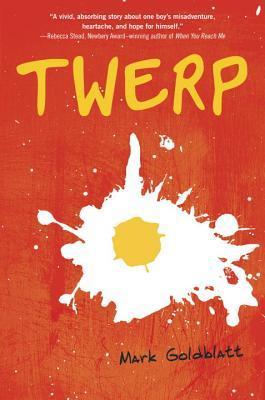What do you think?
Rate this book


288 pages, Library Binding
First published January 1, 2013

"I hate Shakespeare. I know that's hard for English teachers to hear, but it's the truth."is possibly realistic—perhaps disappointing—in a sixth-grade boy, but to read just chapters later that he goes back to his dreaded fourth grade memorisation speech “What a piece of work is man!” and concludes “That’s life in a nutshell, if you ask me”, and especially to hear the reasons why he's changed his mind, makes this an absolute gem among middle grade novels. Julian’s pejorative comments about people, too, are often reassessed by the end… this change is just one among many that take place in the process of writing the journal.
"So you guys can go back to talking about the usual stuff, like whether to erase the blackboard from top to bottom, or from side to side, or around and around in a mishmash."to his thinking through what he's learned in class (and the times he's put his foot in it), to wondering about his bar mitzvah, to his being mad at God for the grievances of his sixth-grade life, his regret for being so and his reflections on life and suffering and mistakes and beginning again. About three quarters through he’s dazzling us with statements like
“That’s what it means to be a man. You do what you think is right, regardless of who it hurts, and whether it works out, because in the end you have to live with yourself.”
That’s what it means to be a man. You do what you think is right, regardless of who it hurts, and whether it works out, because in the end you have to live with yourself.
But here’s the weird part. Knowing the truth frees you up. Or at least it frees you up if you accept it. Knowing that, in a thousand years, nothing you’re doing or not doing will matter frees you up to do what your heart tells you to do.